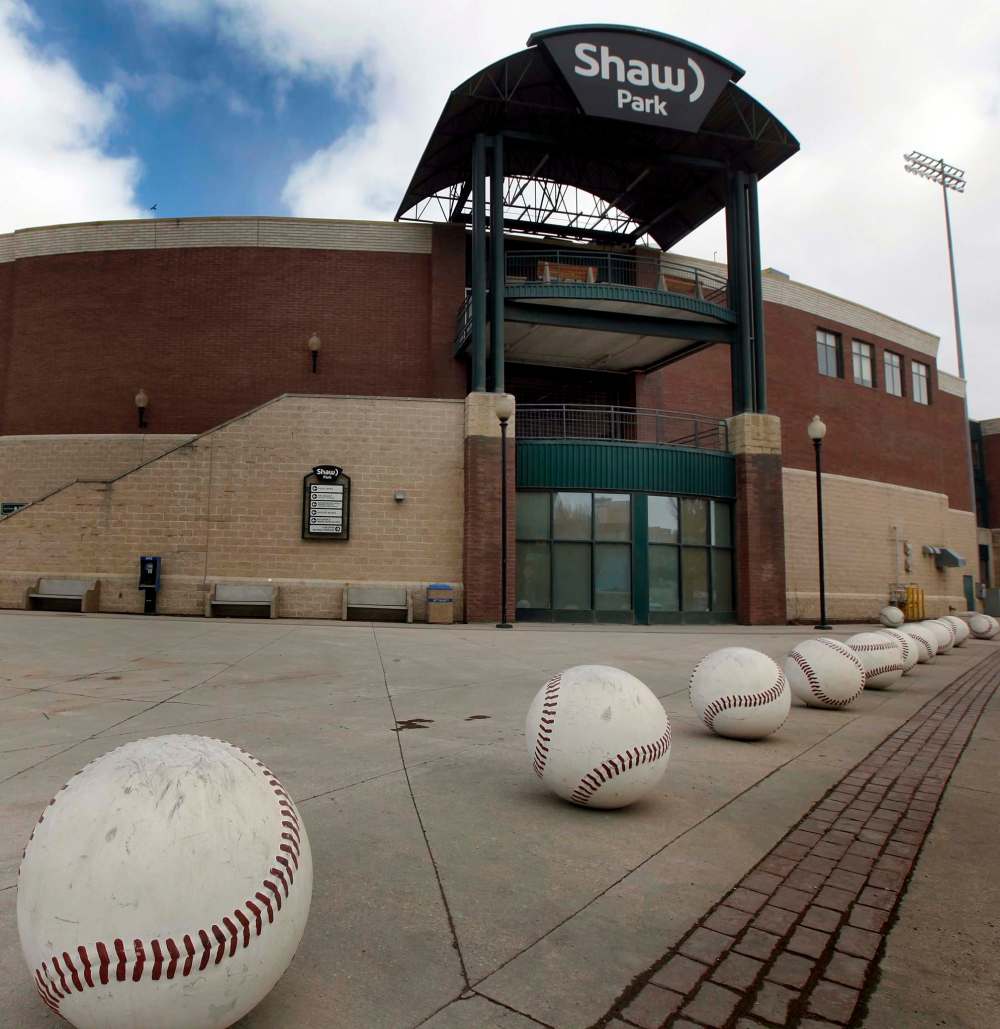City, Goldeyes prep for stadium land lease negotiations
Advertisement
Read this article for free:
or
Already have an account? Log in here »
To continue reading, please subscribe:
Monthly Digital Subscription
$19 $0 for the first 4 weeks*
- Enjoy unlimited reading on winnipegfreepress.com
- Read the E-Edition, our digital replica newspaper
- Access News Break, our award-winning app
- Play interactive puzzles
*No charge for four weeks then billed as $19 plus GST every four weeks. Offer only available to new and qualified returning subscribers. Cancel any time.
Read unlimited articles for free today:
or
Already have an account? Log in here »
Hey there, time traveller!
This article was published 27/03/2019 (2112 days ago), so information in it may no longer be current.
The $1-a-year stadium land lease between city hall and the Winnipeg Goldeyes baseball team owned by former mayor Sam Katz is about to enter replay review.
Coun. Brian Mayes, chairman of the property and development committee, said with the lease on the Shaw Park land set to expire in 2023, it’s incumbent on council members to work out a new deal with Katz before the four-year term expires.
“We can’t leave this for some group elected in October 2022 with the lease running out at the start of 2023. The team needs to know where it’s playing in 2023,” Mayes said.

Mayes will introduce a motion at Monday’s committee meeting, directing the administration to sit down with Goldeyes representatives and work out a new lease by the end of September.
The city owns the downtown property the ballpark is built on. Council agreed in 1998 to give Katz a 25-year lease, in exchange for payments of $1 per year, with the team paying property and business taxes, utilities and maintenance costs.
The ballpark was constructed in 1999 for about $19.8 million, with Katz and his partners putting up about $11.8 million, city hall $2 million, and the provincial and federal governments $3 million each.
The lease is held by Riverside Park Management, a non-profit holding company set up by Katz in 1997, which in turn sub-lets the ballpark property to the American Association franchise. The lease expires July 27, 2023.
The ballpark was an instant success and the team regularly sets league attendance records. It was originally built with 6,140 seats, and has been expanded twice.
Council has a policy that requires leases with for-profit organizations and businesses to be based on market value. The land is considered prime real estate — in the heart of downtown, adjacent to the Red River and a short walking distance to The Forks — and would be worth a small fortune, certainly more than $1 annually, if developed for commercial purposes.
Katz said elected officials and the public have focused solely on the $1 lease payment, but the independent league team’s real value to the city is much higher than that.
“We hired a professional consultant, and his report bears out the fact that we pay more (to the municipality) than any other (comparable) ball team,” Katz said.
City officials attempted to negotiate a new lease with Katz in 2016 and 2017, but a promise to bring a deal to council never happened. Mayes said he believes the $1 payment is no longer appropriate, but doesn’t know what the new amount should be.
“We should certainly get more than a buck a year. How much? I don’t know. But people should also be aware we are getting some money in property tax payments.”
The administration hired a consultant to survey minor league ballpark lease rates to determine a new lease amount, Mayes said, adding Katz disputed its findings and produced his own report.
The administrative report was to include a review of how other municipalities (Ottawa, Vancouver, Edmonton, Calgary) treat leases on valuable downtown civic-owned property; the benefits to the city from the presence of the ballpark; examine whether city hall wants the land back for other purposes; and whether the lease rate should be adjusted to reflect current market values.
Mayes said the two reports “cancelled each other out, in my view.”
“The administration looked at one set of data, the Goldeyes looked at one set of data. There’s a lot of different numbers out there,” Mayes said. “At the end of the day, we’ve got a ballpark. They need a ballpark. We need a team for our ballpark. We should be able to work out something.”
Katz said he hired his own consultant at the suggestion of the city administration, after he pointed out their report had ignored factors such as taxes, utilities and building maintenance costs.
The former mayor (2004-14) said while he’s not opposed to paying more, the new amount should take into consideration the team’s real costs.
Katz said the team pays around $341,000 annually in municipal ($70,000), education ($215,000) and business ($56,000) taxes, and was the only minor league ball team among those surveyed that paid such taxes.
The Goldeyes’ report was delivered to the city last week.
aldo.santin@freepress.mb.ca
History
Updated on Thursday, March 28, 2019 6:20 PM CDT: Updates headline
Updated on Friday, March 29, 2019 7:18 AM CDT: Final
Updated on Friday, March 29, 2019 7:28 AM CDT: Photo added.


